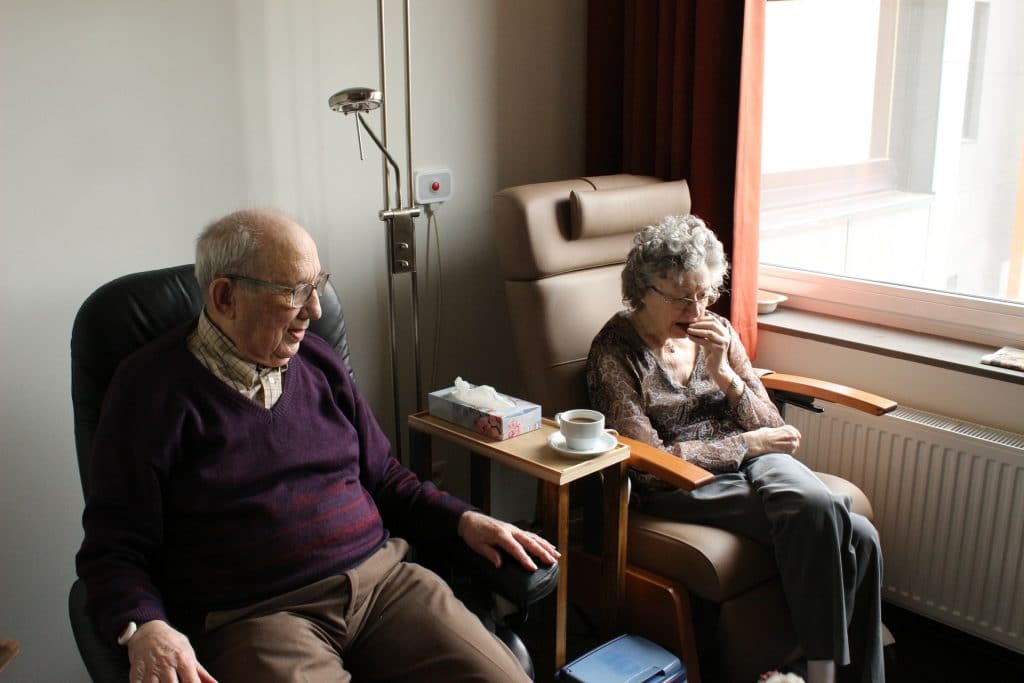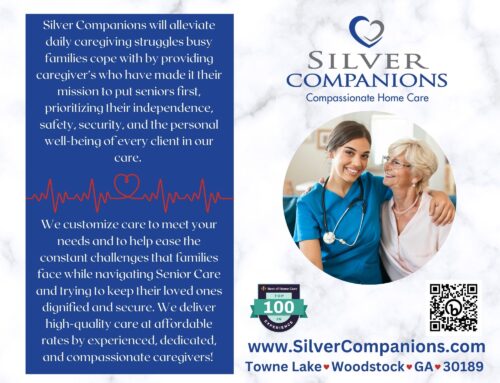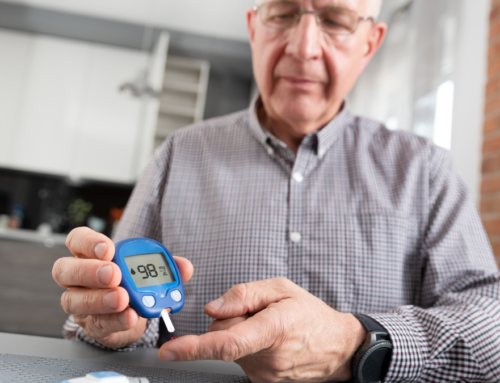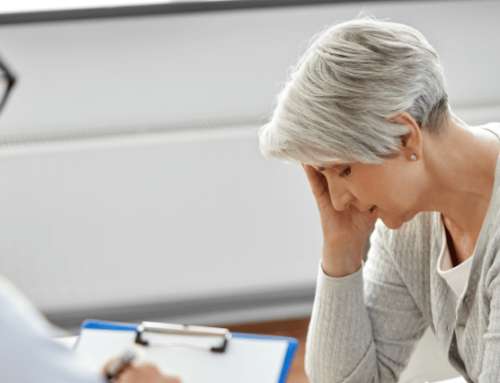What Could Be the Biggest Threat to Aging Parents Right Now?

Everyone is still talking about COVID-19. While states are beginning to relax restrictions, more businesses are opening up, restaurants are allowing diners back inside, and folks are able to get their hair cut and their nails done. At the same time, it’s raising questions about our safety. People are asking, “Is it too soon?”, “Will this cause another spike in cases of the virus?”, and “Are people taking sufficient safety measures when they’re out in public?”. These are all very valid questions, and there are a variety of answers, many of them seemingly contradictory.
We have had to adjust to a completely new way of life. In just three short months, our lives were turned upside down and we went from normal everyday life, to being locked down in our homes across the nation. We’ve seen the stock market moved radically in both directions, we’ve seen massive crowds at grocery stores and shopping clubs as people stock up on common everyday items, and we’ve seen the death toll rise as the pandemic continues to spread.
With everything that has been caused by COVID-19, the fear, the anxiety, the pain, and the uncertainty…there is one thing that this crisis has caused that could wreak greater havoc, especially on our aging population, than even the virus itself…
We are talking about isolation and loneliness.
Sure, we’ve all felt lonely at some point in our lives. We may have even felt isolated or cut off from family, loved ones, friends, or even the general population for a short period of time. The difference is, when those feelings are felt by an older individual, one who was already feeling cut off from society, maybe even alienated, because they are also dealing with all of the factors of aging itself – lack of mobility, lack of freedom, lack of independence, losing friends or loved ones to death – it is amplified by 1000%.
Imagine this…you wake up in the morning, your back hurts, your legs hurt, you can’t see very well and your hearing is atrocious…You get up out of bed, get a cup of coffee, take your medications, and sit down to read the morning paper. As you read, you see an obituary of a friend of yours, that you didn’t even know had passed.The viewing is in just 3 days, but with the risk of the pandemic, you know you can’t possibly risk going out in public like that. Besides, how would you get there? You can’t drive anymore, you even had to give up your license and your car, because of your declining health, and eyesight. You could ask your neighbor to drive you, but you really haven’t been in touch with them as much since all of this started, and you don’t want to be an inconvenience. Well, you can at least call your friend’s family and pass along your condolences…but, somehow, that just doesn’t seem like enough…what else can you do? You’re stuck…
Just imagine how isolated and alone you would feel in that situation. Scared to go out in public for fear of the virus, really no easy way to get there anyway, and, really, nobody who you can reliably turn to in your time of need, without causing major feelings of guilt and shame…
That is how intense the feelings of isolation can feel, and it leads to more than just feeling sad. It can lead to depression, and that can, in turn, affect their health in a variety of negative ways. In fact, some research has shown that loneliness can be as dangerous as smoking 15 cigarettes per day, or abusing alcohol.
Here are 5 risks of loneliness followed by what you can do to help:
- Social isolation kills – Seniors who are socially isolated from friends, family and community organizations, have a significantly higher risk of mortality according to the Proceedings of the National Academy of Sciences. Other studies have shown that loneliness increases the risk of early death twice as much as obesity!
- Loneliness can weaken your immune system – That’s right, loneliness can actually make seniors more susceptible to catching the virus, or any virus for that matter. According to an article published on npr.org, Researches have noticed that the white blood cells in lonely people cause inflammation over long periods of time. The human body is not designed to have a high white blood cell count for a long period of time. Sustained inflammation has been linked to everything from cancer to viral infections and neurological decline.
- Loneliness causes dementia – Seniors who feel lonely are more likely to suffer from memory loss, dementia and Alzheimer’s according to one study. In this case it didn’t matter if the person was socially isolated, so much as if they felt lonely. You can be in a sea of people and still feel alone. Humans need meaningful social interaction – its absence results in cognitive decline.
- Loneliness can cause depression – Loneliness can trigger clinical depression among seniors. Aside from feeling sad, depression can cause seniors to stop taking care of their health, stop exercising and stop eating, causing even further social isolation.
- Loneliness can cause heart disease – According to one Harvard study, loneliness can be as high a risk factor for heart disease as smoking! Yes, you heard that right. If you want a healthy heart, research now proves that maintaining relationships and creating new ones is a good strategy. Of course that doesn’t mean you get to ignore healthy exercise and a good diet!
Ok, that sounds pretty grim, right? So what can you do to help, and help them feel more connected, less isolated, and more cared for?
I’m glad you asked!
- Give a senior something to take care of – Obviously this doesn’t work in all cases, but when possible, giving a senior a pet, like a dog or cat, can work wonders with staving off the feelings of isolation. Believe it or not, even having a small garden, or even few houseplants can help by returning that feeling of nurturing.
- Make technology available – In some cases, it might be providing an iPad or iPhone to a senior and teaching them how to FaceTime. Or, in other cases, for example if they are experiencing hearing loss, can you provide them with assistive devices to alleviate some of the symptoms? We live in a technological world right now, and more than ever before you have access to technology that could possibly be the solution they need to reconnect them to at least part of their world.
- Promote a sense of purpose – Struggling with depression is much tougher for people who’ve lost their sense of purpose in life. To keep loneliness at bay, encourage the senior to take up a hobby such as knitting or gardening. You can also talk them into trying social activities such as card playing, yoga, or volunteer work for a local charity.
- Keep them physically active – Research has found that physical activity can be a lifesaver for aging persons. Gentle exercises such as walking, stair climbing, and age-appropriate workouts can help a senior stay in solid physical, mental, and emotional shape. You can also encourage the depressed person to sign up for a group exercise class like yoga or tai chi – they might even make friends with like-minded peers.
- Consider in-home care – For senior family members who are living independently, you can hire someone to check in on them once a day and help with day-to-day chores such as grocery shopping and bathing.
Hopefully this has opened your eyes to the dangers of isolation, and given you some ideas on how to help them overcome it. If you, or someone you know, has an aging loved one who is currently isolated at home, please reach out to us, just to have a conversation.
We are here to help, even if you just need to talk through the circumstances, so you can discover what options you may have available. You may even be surprised and find you have more options than you thought.
We promise, there is no obligation, and nothing even close to any pressure. Don’t feel like you’re isolated with your situation, we can help talk you through, and help you find a realistic, and affordable solution, no matter what your budget.
Give us a call at (678) 494-8129 or email us at info@SilverCompanions.com.





